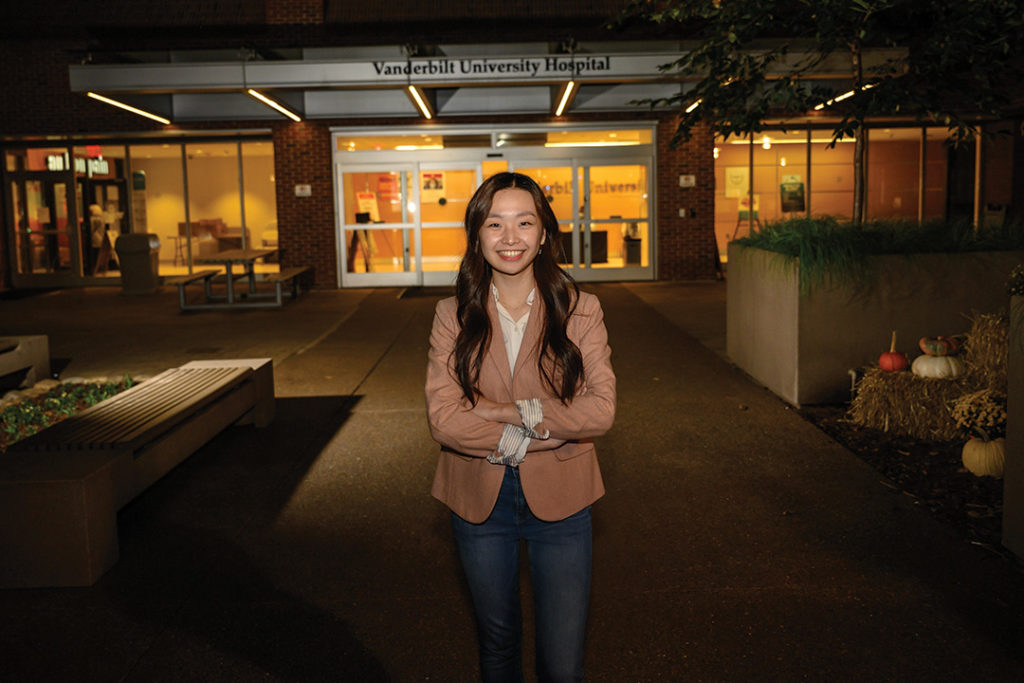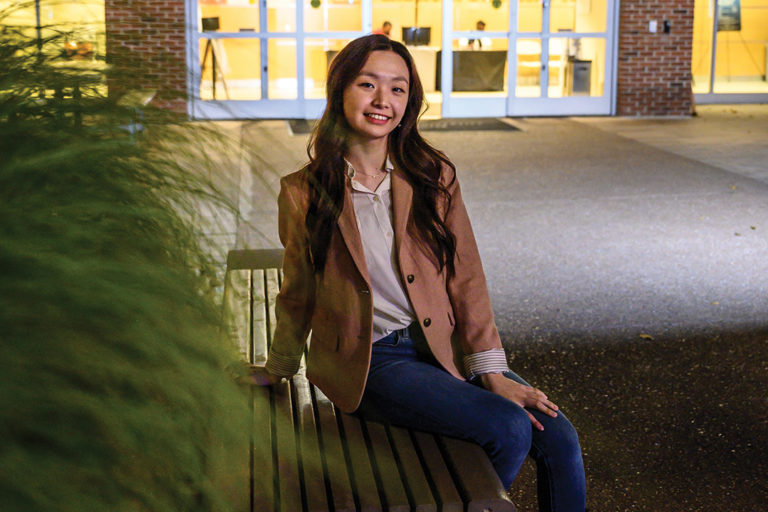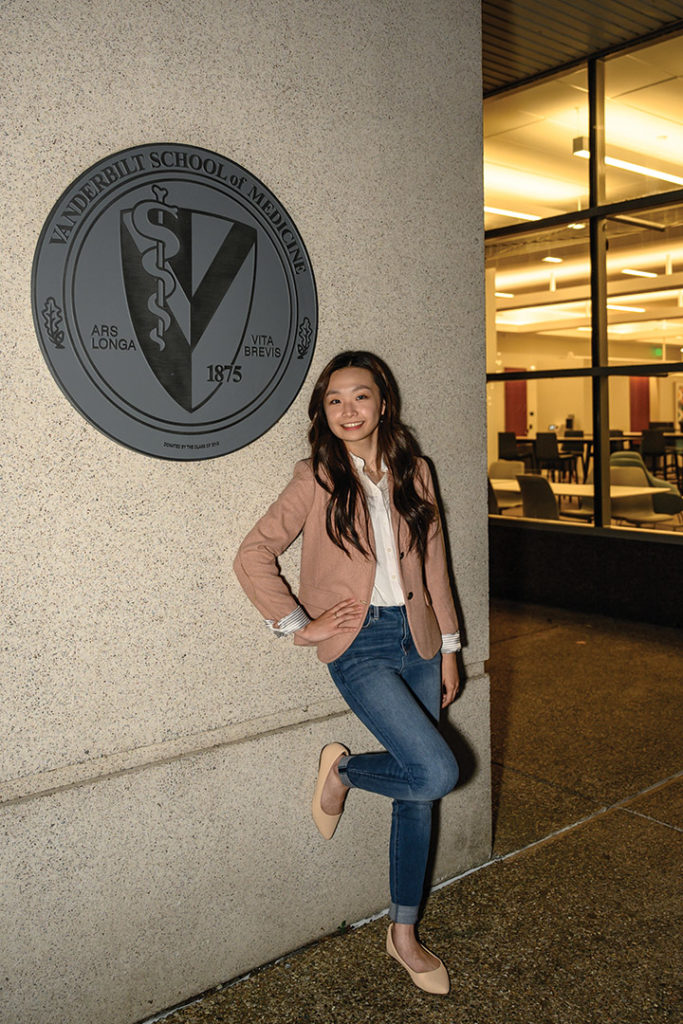Yeongha Oh ’21 was a child when she moved to the United States with her parents and big brother, Chan ’18, in 2002. At just 3 years old, she and the family came from South Korea in search of a better situation for themselves. They moved around to various states in search of that situation, as well as a permanent residency status that never panned out for them.
Her parents set up shop as tailors, and Oh bought into the American Dream, believing that if she worked hard enough, this world would open to her. And it started to open up with the advent of the 2012 Deferred Action for Childhood Arrivals (DACA) program, which allowed Oh and other Dreamers to stay in the United States. She was studious and serious and worked her way to valedictorian of her Georgia high school. Now she was ready to take it to the next level in college.

But there was a bit of an issue. What school would accept her and how would she pay for it? Despite being valedictorian, DACA students did not qualify for federal financial aid. And in Georgia, DACA students were barred from attending the most selective institutions. In addition, the schools available to her commanded out-of-state or international tuition rates. For a while, it seemed Oh’s dream of a college education was coming to an end.
“I was very worried about not being able to go college, which felt very unfair to me,” she said. “I was always told that if I worked really hard and studied really hard, I would get any opportunity.”
Fortunately, Chan, who had always been a role model and source of support, was about to be a senior at Berea College, which offered Oh a chance to pursue her dreams once again. She already had her eye on medical school. She wanted to be a doctor to help patients like herself and her family.
“We did not have any health insurance because my parents barely made enough for us to have a house and to have food,” Oh said. “So, we were locked out of one of the best medical care systems in the world. I wanted to be a doctor who had open doors to anyone who needed medical care, regardless of their immigration status or their socioeconomic background, because I know how it feels to be locked out while being sick.”
These same issues plagued her as she searched for medical school opportunities. Medical schools prefer candidates with research experience, but many research projects in the United States are federally funded, meaning that Oh faced being locked out once again. It just so happened, though, that Berea College is one of four schools that participates in Vanderbilt University’s Short Pipeline program, which accepts undergraduate students from underrepresented groups who aspire to a career in medicine. Oh spent her summers researching HPV-related cancers, and Berea College provided her with a stipend to cover her living expenses in Nashville.
“Berea really changed my life,” she said.
When it came time to take the MCAT, the entry test for medical school, Berea was there again to cover the cost of test registration and study materials. “I was very grateful because just preparing for the MCAT is so expensive. But because I had the support of Berea, I didn’t have to pay for anything out of pocket,” she said.
Now with a full scholarship to Vanderbilt University School of Medicine, Oh is already looking for ways to pay it forward. She will be volunteering at the school’s clinic for the uninsured and underinsured.
“I’m very excited to spend my time there,” she said. “I think that’s one of the main things that made me really want to come to Vanderbilt. I am so honored to be a part of that clinic and to work for that population.”



